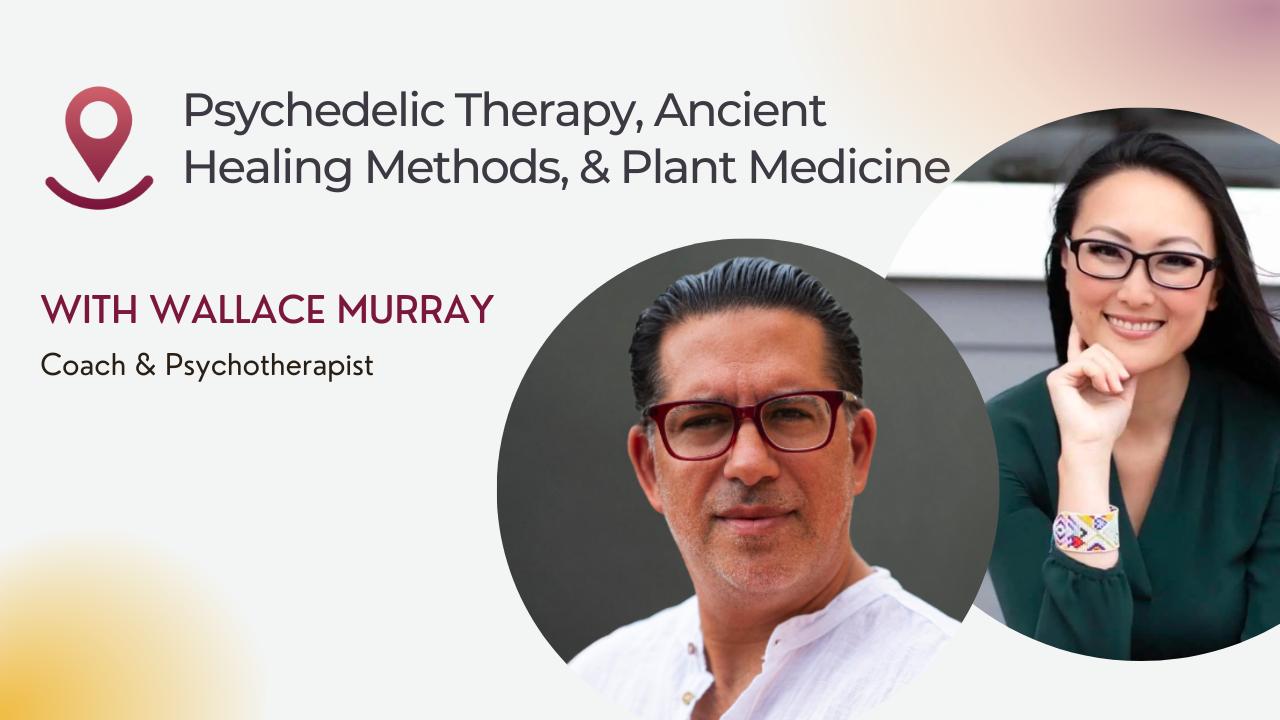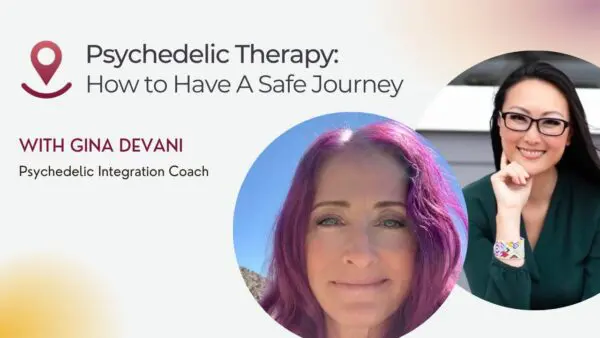In this interview, Jemie Sae Koo, CEO and Founder of Psychable, speaks with coach, psychotherapist, and mental health consultant, Wallace Murray. Wallace shares his journey from his upbringing in Saskatchewan, Canada, to his specialization in trauma and non-ordinary states of consciousness. The conversation explores the intersection of ancient healing methods and modern therapeutic approaches involving psychedelics and other plant medicines.
Psychable: Can you tell us about your background and journey that led you to work with psychedelic-assisted therapy?
Wallace Murray: My journey has been quite diverse. I grew up in Saskatchewan, Canada, in an area marked by intergenerational trauma. My studies include psychology, applied linguistics, and coaching. I’ve specialize in trauma and non-ordinary states of consciousness. I’ve also completed advanced training in psychedelic therapy and programs in psychedelic studies.
How did your experiences with non-ordinary states of consciousness shape your approach to working with clients seeking psychedelic-assisted therapy?
My experiences working with knowledge keepers and participating in ceremonies showed me the power of non-ordinary states of consciousness. I learned how these states can offer insights and healing. My work with trauma and end-of-life experiences helped me understand the importance of the relational aspect of therapy. It is important to focus on the individual’s unique background, experiences, and goals before considering psychedelic therapy.
What is your process when a client approaches you for support with psychedelic-assisted therapy?
I begin by understanding their motivations and background. I explore their familiarity with plant medicines, their cultural connections, and their current practices. If they’ve had previous psychedelic experiences, we touch on those as well. I guide them through a discovery process, helping them unpack and understand their experiences. This helps them make informed decisions about whether or not to pursue psychedelic therapy.
How do you see the connection between ancient healing methods and modern therapeutic approaches involving psychedelics and plant medicines?
Ancient healing methods and modern approaches can intersect beautifully. Indigenous knowledge keepers have worked with plants and non-ordinary states for centuries. Modern science provides insights into brain functioning and therapeutic techniques. Combining these perspectives allows for a holistic approach to healing.
How do you address concerns from clients who are afraid to replace one substance with another when they are exploring psychedelic-assisted therapy?
It’s a valid concern, but the approach matters. Unlike substances like alcohol, psychedelics like psilocybin and MDMA have shown potential in therapeutic contexts without inducing addiction. By understanding the unique properties of each substance and addressing the root causes of chaotic usage, clients can develop healthier relationships with substances. The focus is on healing and personal growth, rather than substituting one addiction for another.
Can you explain the process of releasing a potentially addictive relationship with substances like cannabis or alcohol through therapy?
Releasing addiction involves understanding the role the substance played in the person’s life. This often includes pain relief or emotional numbing. By acknowledging the positive aspects of the relationship while recognizing its negative effects, clients can transition to healthier coping mechanisms. The goal is to build a new relationship with their pain and discomfort, empowering the individual to move beyond addiction and find healing without relying on substances.
How does the cultural and historical context influence the use of psychedelics and cannabis in traditional healing practices, and how can this respect the origins while integrating into modern therapy?
The use of these substances has ancient roots, especially in indigenous communities. The wisdom from these traditions provides valuable insights into how to work with the medicines. It’s essential to engage in conversations with these communities, learn from their practices, and integrate their knowledge into modern therapeutic approaches. Respect for their ancestral wisdom is crucial while ensuring that these practices are adapted ethically and responsibly.
How do you ensure a safe and supportive setting for individuals undergoing psychedelic integration?
Building a strong therapeutic relationship is paramount. Clients must know that they are in a secure and non-judgmental space. I emphasize that all parts of them are welcome and encourage them to express their feelings freely. Preparing individuals for their journey, helping them learn how to be with their experiences, and discussing potential challenges are part of the preparation process. If faced with challenging experiences, guidance on how to engage those experiences is provided, and in ceremonial settings, experienced practitioners are equipped to handle such situations.
What role does integration play in psychedelic and cannabis-assisted therapy, and why is it important?
Integration is the process of bringing the insights and experiences from psychedelic journeys into daily life. It’s a holistic approach involving mind, body, emotions, and environment. It’s not just about the therapy session; it’s about how one lives their life in alignment with their newfound wisdom. Without integration, the experiences from their journey may be forgotten, and real transformation is limited. Integration is a lifelong process that involves embodying the lessons learned and making conscious choices in every aspect of life.
Can you share some success stories of individuals who have experienced significant healing through psychedelics and cannabis-assisted therapy?
I worked with a 16-year-old boy who had experienced severe trauma and abuse. After exploring cannabis-assisted therapy, he was able to regulate his emotions and open up about his experiences. This allowed him to engage in therapeutic work and make progress.
First responders have also benefited from cannabis-assisted therapy, helping them confront traumatic events. I’ve witnessed people shedding shame, guilt, and fear after these therapies, leading to significant positive changes and an improved relationships in their lives.
How do you address the stigma and misconceptions around the use of psychedelics and cannabis in therapeutic contexts?
Addressing stigma involves open conversation and education. Cannabis, for instance, has been a sacred plant in various cultures, and its medicinal properties have been acknowledged for a long time. Engaging with different communities and sharing research can help dispel misconceptions. Younger generations are becoming more open to different perspectives, while older generations can also be educated about the therapeutic potential of these substances. It’s crucial to approach each person individually and provide information to help them understand the benefits and uses.
Is there a specific approach for meeting individuals where they are in the integration process and after a psychedelic experience?
Yes, it is essential to meet individuals where they are at. Some clients may not be ready to go right into talking about their psychedelic experience, so I adapt my approach based on their readiness. Some individuals may need a lot of time to feel comfortable to talk about their psychedelic experience, while others may want to start unpacking their experience right away. It’s important to assess where each individual is at in his or her healing journey and tailor the approach accordingly.
Conclusion:
By bringing together ancient wisdom and modern therapeutic techniques, Wallace Murray paves the way for a holistic approach to healing that fosters personal growth and transformation. Through his work, Wallace guides individuals towards breaking free from addictive patterns and embracing a life of wellness and empowerment.
With a wide range of services including counseling, psychotherapy, mindfulness training, trauma-focused psychotherapy, somatic therapy, pre- and post- psychedelic counseling, and more, Wallace Murray offers comprehensive support for diverse needs.
To connect and learn more about Wallace Murray, visit his listing on Psychable.









